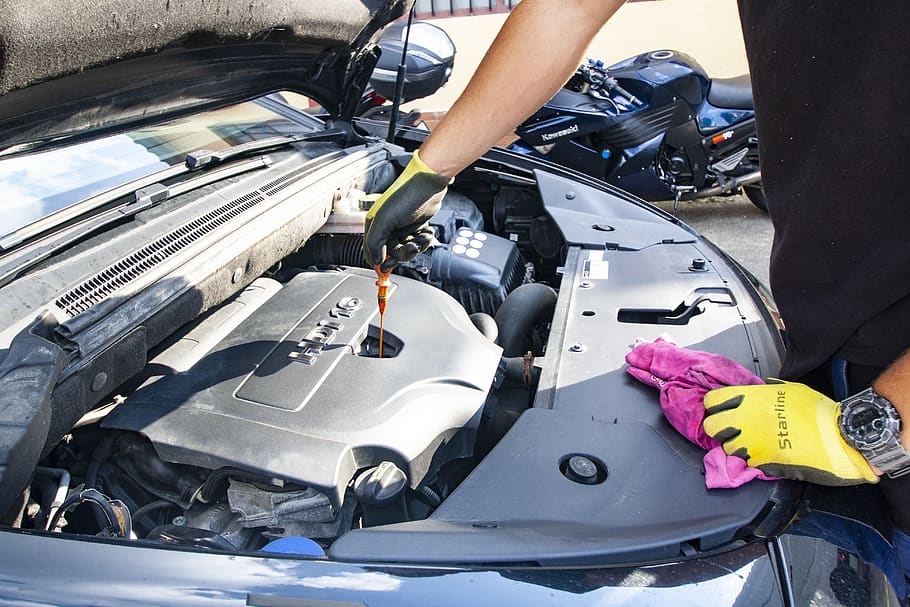Don’t let extreme weather take a toll on your beloved car! Whether it’s the monsoon’s downpours, the summer’s scorching heat, or the chilling embrace of winter, your cherished vehicle deserves the utmost care to stay in its prime. This guide will help protect your beloved ride against the elements and keep it cruising smoothly through the icy winter winds!
- Make sure to check the lights on your vehicle
During the winter months, when daylight hours are shorter, it becomes crucial to have properly functioning lights on your car. Regularly check the headlights, taillights, turn signals, and reverse lights. If you find malfunctioning lights, promptly replace them at an electric car repair shop. Remember, a burned-out bulb is often the culprit behind a malfunctioning light.
- Don’t Ignore your Fuel Light
Neglecting the oil levels in your car can have severe consequences, leading to engine failure or breakdowns. Research shows that low oil levels are prevalent in one of every three vehicles. To avoid this, make it a habit to check your oil levels once your car has warmed up thoroughly. In colder temperatures, oil appears lower, so ensure you have the appropriate amount without exceeding the recommended level. If needed, get the oil replaced at any reputable car repair shop.
- Checking the Battery
A malfunctioning battery is the ultimate cause of vehicle failures. It is hazardous in cold, rainy, and icy weather conditions. If you are experiencing trouble starting your car in the cold, having your battery checked or replaced every three years is advisable. Signs of battery failure include prolonged engine ignition time and flickering red battery light on the instrument display while driving.

- Examining the Tires
Worn tires are hazardous, especially in icy, snowy, or muddy conditions when stopping distances are longer. While the legal requirement for tire tread depth is 1.6mm, experts recommend changing tires when the tread depth reaches 3mm to ensure safer stopping distances. It is also essential to have a roadworthy spare tire. If you must travel unpaved or bumpy roads, consider purchasing snow chains, stockings, or winter tires. To determine if a tire needs to be replaced, check for visible signs of degradation, such as missing rubber pieces or bubbles in the sidewall. Experts suggest replacing a tire when it has 4/32″ of rubber remaining, and if the tread depth is 2/32″ or below, immediate replacement is recommended for safety reasons.
- Adding Antifreeze to the Engine Coolant
Add antifreeze to your engine coolant when temperatures drop below freezing. Ensure the mixture is 50% antifreeze and 50% water for optimal protection. Over time, the coolant may dry up, so it’s important to top it off with antifreeze instead of just water, as water can dilute the antifreeze and lead to freezing in freezing weather. Diluted antifreeze can cause the engine to overheat and result in costly repairs.

- Check and Clean Windshield and Wiper Blades
Regularly check your wiper blades for any damage like holes or tears, ensuring they effectively clean your windshield. A quick wipe-down with a cloth can help maintain their performance. Avoid pulling the wiper blades from a frozen window or turning them on when the windshield is covered in ice to prevent damage to the rubber material.
Tip: Remember to keep the windshield washer container full of appropriate washing fluid, especially during wet, salty, or muddy road conditions.
- Renew Your Car Insurance
Ensure that your car insurance is up to date and active. This helps protect you financially in case of any damage or repairs needed due to the cold weather. Online platforms make it easy to renew your auto insurance quickly, so keep your paperwork ready and avoid any unnecessary inconvenience.
- Check Your Brakes
Maintaining good brake condition is crucial, especially during winter. If you notice any squeaking, strange noises, or unusual sensations when using your brakes, have them checked by a professional. When starting your car after it has been parked outdoors in the cold for a few days, take it slow to allow any frozen brakes, calipers, or discs to thaw properly.

- Essential Equipment for Your Car
To be prepared for unexpected situations, ensure you have the following items in your car: A de-icer and ice scraper, a triangular warning sign, a sleeping bag, a blanket, warm clothing, well-suited footwear, batteries, torch, phone, and charger.
- Car Maintenance in Winter
Regular car maintenance is essential throughout the year, especially in winter.
Tip: Consult your owner’s manual for the recommended maintenance routine, generally advised every 15,000 km or 12 months, whichever comes first.
Remember, a lack of heat in the cabin is only sometimes due to a broken heater core. Check all components, such as coolant level and water pump, to ensure proper functioning. Seek professional car maintenance services to enjoy safe and pleasant journeys.
For the best car maintenance services and accessories, visit Kingsway Accessories. They offer many car accessory options and are one of the biggest car cover manufacturers in Delhi. Visit their website today to learn more.

Leave a Reply